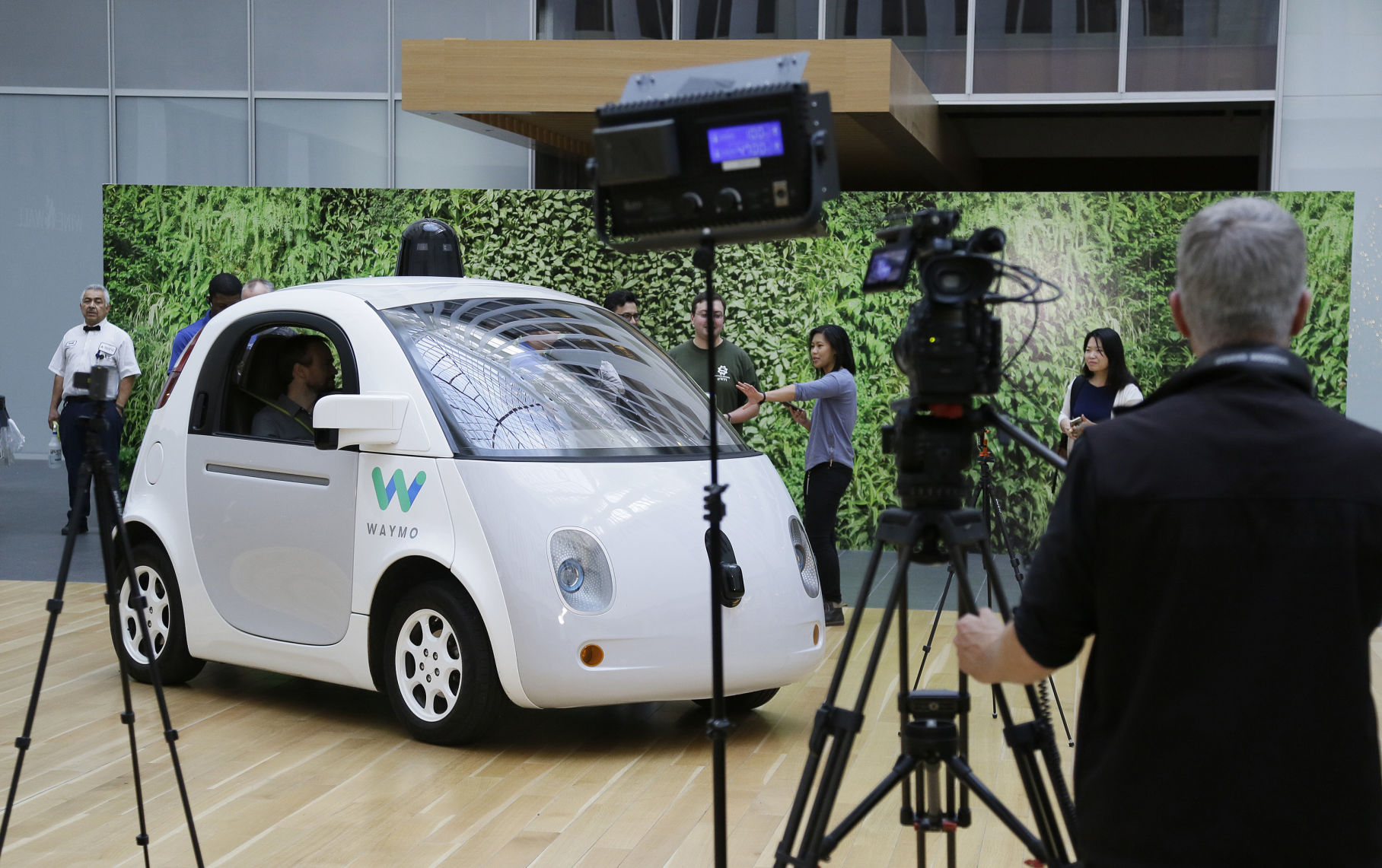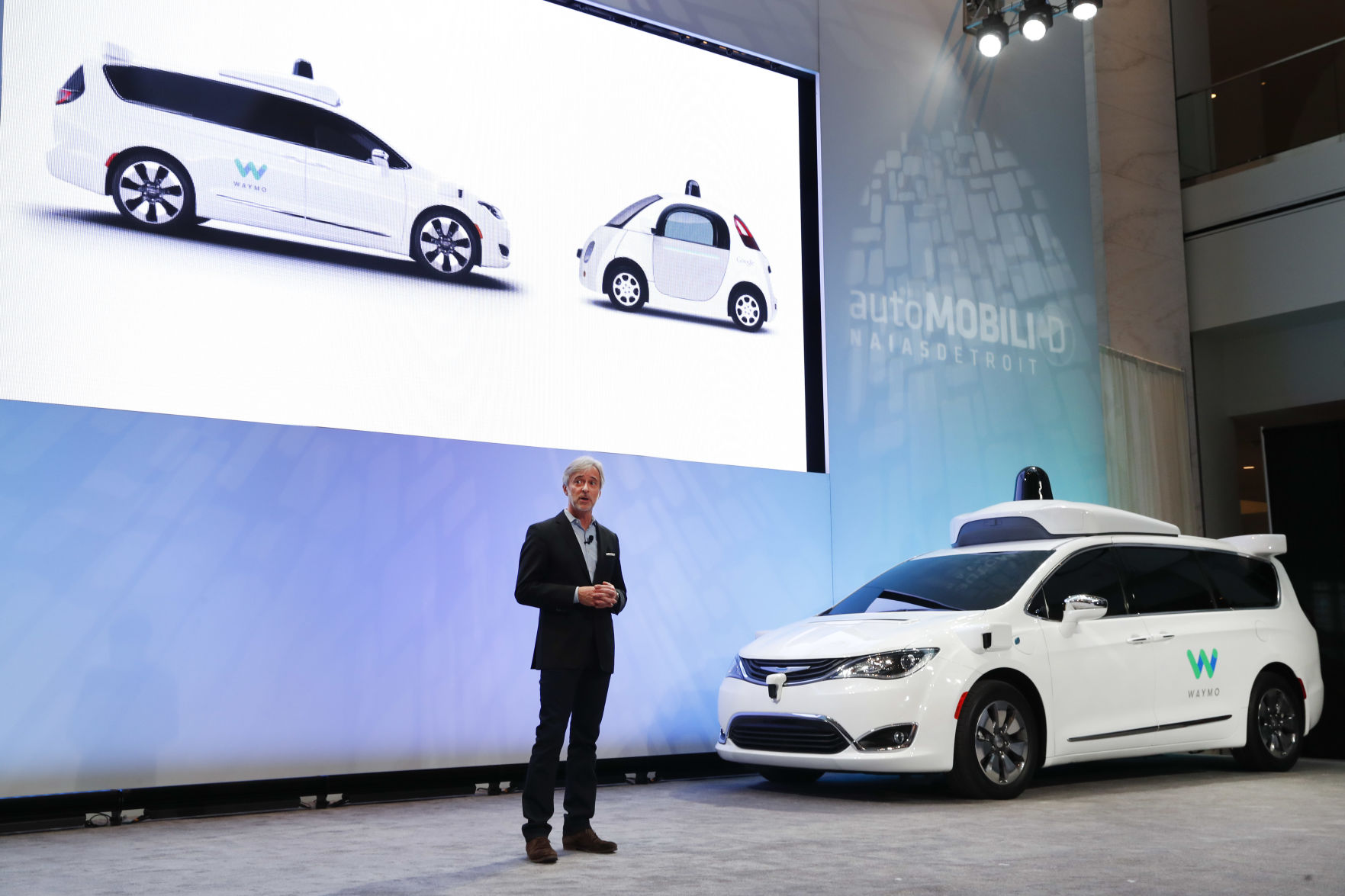LOS ANGELES (AP) — Although consumers can’t yet get a self-driving car for themselves, the technology’s long and windy road to market is getting shorter. A public rollout is not imminent. Companies need to perfect the technology before unleashing it
LOS ANGELES (AP) — Although consumers can’t yet get a self-driving car for themselves, the technology’s long and windy road to market is getting shorter.
A public rollout is not imminent. Companies need to perfect the technology before unleashing it for regular drivers, and that means more of the highway and road testing that began several years ago.
Still, California’s Department of Motor Vehicles formally proposed rules Wednesday that starting next year will govern how everyday people in the trend-setting state can get robocars. It was a big step forward for regulations that were first discussed more than four years ago, first drafted in December 2015 and then substantially redrafted to accommodate companies’ concerns.
Several other states also are vying to get these cars of the future into the hands of their residents.
What should the public know about access?
IS THE TECHNOLOGY SAFE?
Safety is paramount, both as a selling point and a potential liability.
Traditional automakers and Silicon Valley upstarts are trying to teach cars to drive in different ways, but all agree that cars which don’t drink, text, fall asleep or drive erratically can save thousands of lives lost to crashes. If the technology were reliably better than human drivers, however, it would be nearing a launch which most companies say is a few years away.
At the same time, in California alone the 42 companies with testing permits have been logging hundreds of thousands of miles on nearly 300 prototypes with few crashes that were clearly the technology’s fault.
That testing requires a trained safety driver behind the wheel, just in case the onboard computers and sensors fail. States including Arizona, Michigan and Texas, also have hosted testing.
Unlike earlier iterations of California’s regulations, the current proposal would follow the lead of the federal government, which wants to let companies self-certify the technology is road ready. That is the same approach as human-driven cars, to which consumer advocates retort that such a huge leap in technology should require outside scrutiny before its public launch.
WHAT WILL THE FIRST CARS LOOK LIKE?
A lot like the cars on the road today.
Though some companies have experimented with cars that lack a steering wheel or pedals, those kinds of advances are likely several years beyond the first models. The reasons are both practical and about perception: The cars may still need a human backup to take control in emergencies, plus much of the public may not be ready to hand over total control to a machine.
WHEN WILL ANY OF THESE CARS BE AVAILABLE?
Consumers probably won’t be able to walk into a dealership and buy a fully driverless vehicle next year. Major automakers like Mercedes, BMW, Ford, Nissan and Volvo have all said it will be closer to 2020 before those vehicles are available, and even then, they could be confined to ride-hailing fleets and other shared applications.
Tesla Inc. says the cars it’s making now have the hardware they need for full self-driving. The company is still testing the software and won’t make it available to owners without regulatory approval.
Industry leader Waymo, as the former Google self-driving car program is known, is not commenting on its rollout schedule.
It’s also possible, if not likely, that the technology will proliferate not as a car that one person owns but rather a shared vehicle that riders can summon with an app or subscription.
WHAT ABOUT THE FEDS?
Automakers and tech companies have complained to lawmakers that a growing “patchwork” of state laws is threatening to inhibit deployment.
Legislation intended to clear away federal regulations has moved quickly through Congress. The House has passed a bill that would permit automakers to seek exemptions to safety regulations, such as to make cars without a steering wheel, and allow the sale of hundreds of thousands of self-driving cars. A Senate committee approved a similar measure last week by a voice vote.
———
Joan Lowy in Washington and Auto Writer Dee-Ann Durbin in Detroit contributed.
———
Contact Justin Pritchard at https://twitter.com/lalanewsman .



